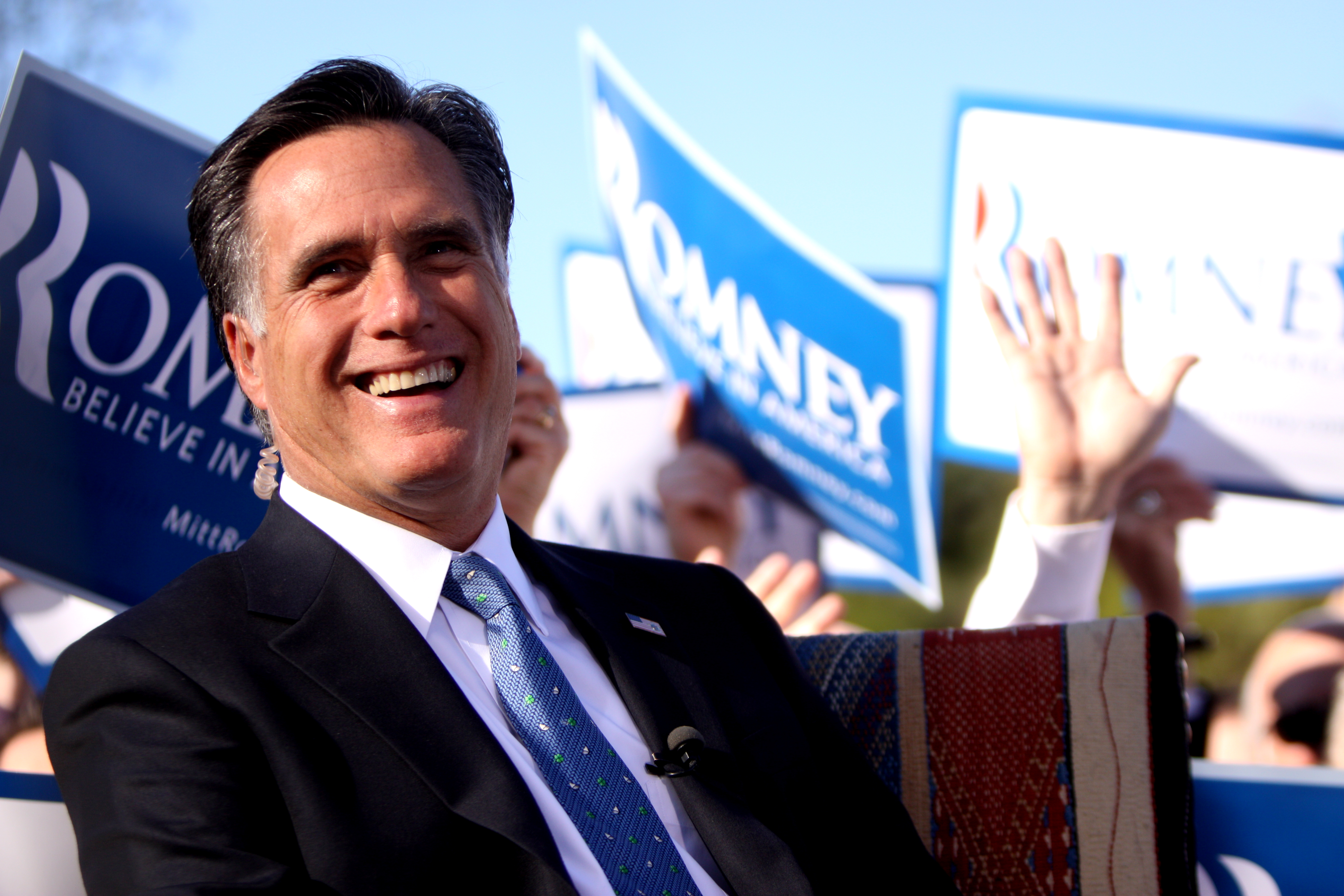By: Emily Kopp 
A cracked voice, shabbily obscured by singing more softly, or by flinching away from the microphone. A reluctant, even frightened stage presence–the stance of an awkwardly self-aware amateur.
“Mitt Romney’s botched rendition of ‘America the Beautiful’ was as bad as Lana del Rey’s premiere on Saturday Night Live.” It reads like a punch-line.
But perhaps there are more parallels between the out -of-tune politician and the out-of-tune artist than their proximity in a “bad performances” YouTube playlist.
Most artists who land a musical guest spot on SNL pine for years before afforded the opportunity to spotlight their songs in front of millions of television viewers. As Brian Williams noted in a now-infamous email to Gawker editor Nick Denton, the 25 year-old singer had only released a two song EP before joining their elite ranks. This begs a look into del Rey’s rapid ascent to fame, an ascent that has far outpaced her maturity as an artist. Del Rey’s music might be classified as part Beth Orton, part My Beautiful Twisted Dark Fantasy– interesting, but not groundbreaking by any means. It seems at least part of the fascination involves an ongoing heated internet debate about what critics claim is her inauthentic personae. They cite YouTube videos featuring a blonder, more simply dressed and decidedly less pouty faced del Rey under a different marquee– “Lizzie Grant.” This discovery has led some to suspect Lana del Rey is an act, and the “real” Lizzie Grant is hidden inside, obscured by her more glamorous alter ego.
But even if we set aside her open-mic night, pre-plastic surgery past, there remain some troubling questions about Ms. del Rey’s image. For one, in her interviews and in her lyrics, Del Rey often bandies “vintage” cultural references, perhaps hoping some of Frank Sinatra’s mystique will just rub off, like glitter shared by gyrating bodies in a Ke$ha video. Rather than using poignant personal touchstones, the bits of pop culture she borrows seem like a carelessly, aimlessly composed amalgamation—anything that connotes un-polished glamour qualifies as “inspiration.” For instance, we must assume that the title for her bouncy, tongue-and-cheek song “Lolita” is meant to connote the Stanley Kubrick poster—its heart-shaped sunglasses and rosy lips– and not the tormented adolescent found in Nabokov’s pedophiliac prose. When asked in an interview about her musical influences, del Rey listed “Nirvana, Frank Sinatra, Elvis, Bob Dylan and Eminem . . . the greats of every genre.” Answers like these simply provide ammunition to her online adversaries. Without a cohesive, directed artistic vision, how can you represent anything but a mirage?
Mitt Romney suffers from the same fatal flaw, the lack of a genuine identity, demonstrated by an endless string policy reversals. As recently as yesterday, Romney reversed his previous statement that he “did not support” the Blunt Bill, a proposed amendment to the Transportation Authorization Bill that would allow employers to deny any sort of provision of health insurance for a moral reason, by saying he was confused by the question. In an article called, “The Internal Contradictions of Mitt Romney,” Paul Krugman points out that Mitt Romney has criticized President Obama for cutting Medicare entitlements, but supports the budget plan proposed by Representative Paul Ryan (R-WI) that would replace Medicare altogether. But perhaps the most incriminating evidence lies with those embarrassing sound bites. In a self-defeating attempt to appeal to the auto workers of Detroit last weekend, he said that his wife drives “a couple of Cadillacs.” At an event meant to endear the candidate to NASCAR fans this week, Romney made fun of some people wearing plastic ponchos, saying, “I like those fancy raincoats you bought. Really sprung for the big bucks.”
Despite what some pundits claim, Romney’s trouble does not stem from his wealth. He defended the NASCAR comment by countering, “[i]f people think there’s something wrong with being successful, then they’d better vote for the other guy,” in many ways an astute response. Praise of America’s wealthy, the “job creators,” has gained prominence Republican rhetoric lately. What grates people is the insincerity of a millionaire who tells the 8% of Americans without jobs that you know what the fear of getting a pink slip feels like. In attempting to earn some “regular guy” credibility, Romney simply comes across as inauthentic.
Romney and del Rey do not just lack “relatability.” Romney’s seeming lack of rigid policy principles has led to the criticism that he takes his political cues from a team of advisors in a calculated attempt to maximize votes. In a similar way, del Rey’s rather scattershot personae has led some to conclude her act is the invention of strategic record label executives. By any objective measure, Lana del Rey and Mitt Romney have received an undue share of criticism. Del Rey, despite her weak SNL showing, has real vocal talent, and the beauty to appeal to a mass audience. Romney’s credentials suggest he would be a capable president, and boasts the resources to compete with President Obama in the general election. But is that enough? To be a beloved singer, fans have to feel like some genuine emotion underlies the lyrics. When del Rey sings, “heaven is a place on earth with you,” did she really feel that, or did she pick up the phrase from a Hallmark card? Born to Die relies on catchphrases and lacks a message about how Lana del Rey defines herself. Romney also makes blanket attempts at mass appeal, often contradicting himself and coming across as phony. But like the empathy people seek in a good love ballad, voters want to feel like the politicians they elect actually believe the policies espouse are best for America, even as pundits speculate about the strategic motivations behind their every move. I contend with the claim that Romney’s “Pay No Attention to the Man Behind the Curtain” method will insulate him from criticism. If Romney does not start defining himself, his campaign will continue to simply ring hollow.

